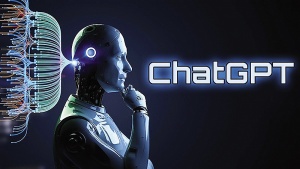ChatGPT and its potential legal implications in Vietnam
 |
| Manh Hung Tran - Head of IPTech Practice Baker McKenzie Vietnam |
By and large, ChatGPT is a chatbot that provides solutions to complicated and problematic issues such as idea brainstorming, essay writing, coding, legal research, and business proposal drafting. By accessing a large dataset on myriad subjects, ChatGPT can analyse human language, learn the patterns, and eventually generate natural-sounding text that is pretty indistinguishable from that of a native human speaker.
According to the media, just a few weeks after launching, this AI reached almost 10 million users and it will not stop there.
The question is whether the operation of ChatGPT would pose any concern for local regulators. Web-based chatbots with which users can ask questions and interact such as ChatGPT are not expressly envisaged under Vietnamese regulations. Vietnam currently has no specific laws regulating AI, its development/training, or its application in products and services.
To this extent, no immediate prohibitions or restrictions seem to be imposed on ChatGPT. Local regulators’ reactions towards web-based chatbots and other AI-empowered products remain to be watched closely in a couple of months.
The operation and use of ChatGPT, however, are not risk-free. This technological tool, similar to almost other kinds of AI models, requires massive amounts of data for self-training and improvement. The quality of the data sources will largely determine the results generated by ChatGPT.
Among others, websites associated with personal information misuse have long been a threat to data privacy, which can now be exacerbated with the large-scale application of this AI technology (unauthorised mass exfiltration and access to confidential data in cyberspace).
Spam and phishing email carrying a malicious payload is a concern that, according to some security experts, has the potential to substantially alter the cyber threat landscape. Under this type of malware, hackers can craft a deceitful yet believable email to swindle recipients into following harmful instructions, such as providing sensitive personal data or transferring money to a bank account.
Malicious software and botnet attacks are also said to be ChatGPT’s security risks that harm users, steal confidential data, hijack computers, and seize control of servers or other kinds of networks with malicious intent.
With an increasingly cautious approach towards cybersecurity and personal data protection, it will be no surprise if more stringent legislative and enforcement actions are taken by Vietnamese regulators in the future, the first few initiatives among which will likely be the enforcement of new cybersecurity rules as well as the enactment of the country’s first-ever comprehensive legal instrument on personal data protection.
From another perspective, by offering ChatGPT, the service provider may be deemed as a trader in a distance contract as well as a provider of continuous service and, therefore, is subject to certain obligations on informational disclosure and contract unilateral termination, as well as other consumer interest assurance rules under Vietnamese consumer protection laws.
The Vietnamese legal landscape for consumer protection is also changing and more or less becoming stringent, which thus necessitates close observation from companies wishing to do business in Vietnam regardless of their place of registration. Another point to keep in mind is that one matter can be prescribed under different legal documents with varied levels of regulation, among which data protection is a notable example.
A data-trained AI like ChatGPT can only learn how to deal with situations raised by the dataset it has seen. Inaccurate data, for example, where data is derived from a recently amended legislation or an erroneous scientific research or market survey, can be of particular harm, especially when it comes to professional advice.
Bias can also be baked into this generative system. Since ChatGPT is trained based on collective human writings, with no boundaries as to time, space, or beliefs. Any biases existing in the input data can possibly appear in this AI model. Discrimination against gender and racial minorities is among the shreds of evidence of bad outputs that AI technologies like ChatGPT can or have generated.
All of these can have adverse effects on adoption, especially when no other check-and-balance mechanisms are put in place. Given the rather novel concept underlying ChatGPT’s operations, it might not be fully clear as to whether traditional legal frameworks worldwide on liability can play any preventive or punitive role against potential harm.
 | ChatGPT and AI booms in Vietnam AI and ChatGPT technologies are forecasted to explode, creating a new wave of technology this year. |
What the stars mean:
★ Poor ★ ★ Promising ★★★ Good ★★★★ Very good ★★★★★ Exceptional
Themes: Digital Transformation
- PM sets five key tasks to accelerate sci-tech development
- Ho Chi Minh City launches plan for innovation and digital transformation
- Dassault Systèmes and Nvidia to build platform powering virtual twins
- Sci-tech sector sees January revenue growth of 23 per cent
- Advanced semiconductor testing and packaging plant to become operational in 2027
Related Contents
Latest News
More News
- Citi economists project robust Vietnam economic growth in 2026 (February 14, 2026 | 18:00)
- Sustaining high growth must be balanced in stable manner (February 14, 2026 | 09:00)
- From 5G to 6G: how AI is shaping Vietnam’s path to digital leadership (February 13, 2026 | 10:59)
- Cooperation must align with Vietnam’s long-term ambitions (February 13, 2026 | 09:00)
- Need-to-know aspects ahead of AI law (February 13, 2026 | 08:00)
- Legalities to early operations for Vietnam’s IFC (February 11, 2026 | 12:17)
- Foreign-language trademarks gain traction in Vietnam (February 06, 2026 | 09:26)
- Offshore structuring and the Singapore holding route (February 02, 2026 | 10:39)
- Vietnam enters new development era: Russian scholar (January 25, 2026 | 10:08)
- 14th National Party Congress marks new era, expands Vietnam’s global role: Australian scholar (January 25, 2026 | 09:54)

 Tag:
Tag:



















 Mobile Version
Mobile Version